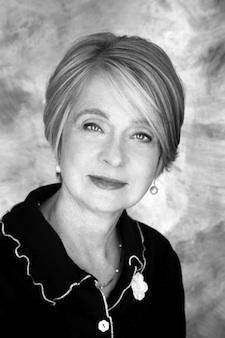Osama bin Laden has been dead almost five years now, but the movement associated with him is still very much around. The Islamic State may have eclipsed Al Qaeda in the terror it holds for Americans, or the attraction it holds for young Muslims flocking to its self-proclaimed caliphate, but the terror group that the United States went to war with in 2001 is alive and well, with branches today in North Africa, the Arabian Peninsula, the Levant, Central Asia and the Horn of Africa. Al Qaeda mounted attacks in Mali in November and in Burkina Faso in January. In December, it was reported that Al Qaeda training camps have reappeared in Afghanistan.
Back in 2004, the U.S. government claimed to have eviscerated Al Qaeda’s leadership. Since then, U.S. leaders have periodically declared Al Qaeda neutralized, its leaders killed, its ranks decimated. But despite billions of dollars spent on destroying the group, Al Qaeda in the last three years has expanded its control and influence. A recent report on it by the American Enterprise Institute notes that it is stronger than ever, with affiliates in more than 20 countries.
If the reports of Al Qaeda’s demise were greatly exaggerated, so were a number of other assertions made about it in the past, according to Flagg Miller, a professor of religious studies at the University of California, Davis. Mr. Miller translated Osama bin Laden’s audio collection after it was confiscated by U.S. forces in 2002. Discovered in a house where bin Laden had lived in Kandahar, Afghanistan, from 1997 to 2001, the tapes feature 200 speakers, ranging from bin Laden himself to other Al Qaeda members to scholars to whom militants turned for religious inspiration and instruction.
Mr. Miller spent years translating the 1,500 audio tapes, which offer a rare window into what Al Qaeda members thought and said about their actions and intentions. In his new book, The Audacious Ascetic: What the bin Laden Tapes Reveal About Al-Qa’ida, Mr. Miller reports that both Al Qaeda and Osama bin Laden were frequently misrepresented by Western officials and media.
“There was no Al Qaeda founded by bin Laden in 1988,” Mr. Miller writes. “There was a camp that was called Al Qaeda. It was Egyptian-led and they tried to marginalize bin Laden for a lot of complicated reasons.”
Though Al Qaeda is associated with jihad against the West, almost never on the tapes did militants mention attacking it. Instead, their primary goal was to dislodge corrupt Muslim state leaders from power. It was bin Laden who redirected their efforts to war against the United States after his growing celebrity in the West enabled him to claim the leadership of Al Qaeda despite militants’ reservations.
Ironically, bin Laden was at the nadir of his career, stateless and broke after having been exiled from Saudi Arabia and expelled from Sudan, when a CNN interview in 1997 brought him to the attention of the American public. In that interview, he was alleged to be the emir of Al Qaeda, with half a billion dollars at his disposal, and the person responsible for the 1993 World Trade Center Bombing, none of which was true. About the same time the Central Intelligence Agency floated the rumor that he was the Ford Foundation of Islamic terrorism.
For Western strategists, bin Laden was a convenient enemy. “The West was looking for a controversial figure in the Middle East who could represent to American audiences the rationale for America’s increasingly militarized involvement in Iraq. Iraq was behind much of the rise of bin Laden through the 1990s,” Mr. Miller writes.
The word qaeda means “base,” a term used in Islamic jurisprudence. It came up often in the Salafi militants’ conversation as they discussed their actions in terms of religious law and ethics. Mr. Miller contends Al Qaeda should be perceived less as a nonstate actor or ideology and more as a discourse and tactic that challenges the legitimacy of Muslim states.
That may sound a little nebulous, but, in fact, confusion about who or what constitutes Al Qaeda now seems endemic among experts who debate whether local insurgencies are or are not Al Qaeda. What is clear is that U.S. efforts to stamp out terrorism with military strikes and drone assassinations have failed and will continue to fail. Until the repressive, dysfunctional conditions in the Middle East that give rise to terrorism change, Al Qaeda and its offshoots will have staying power.








